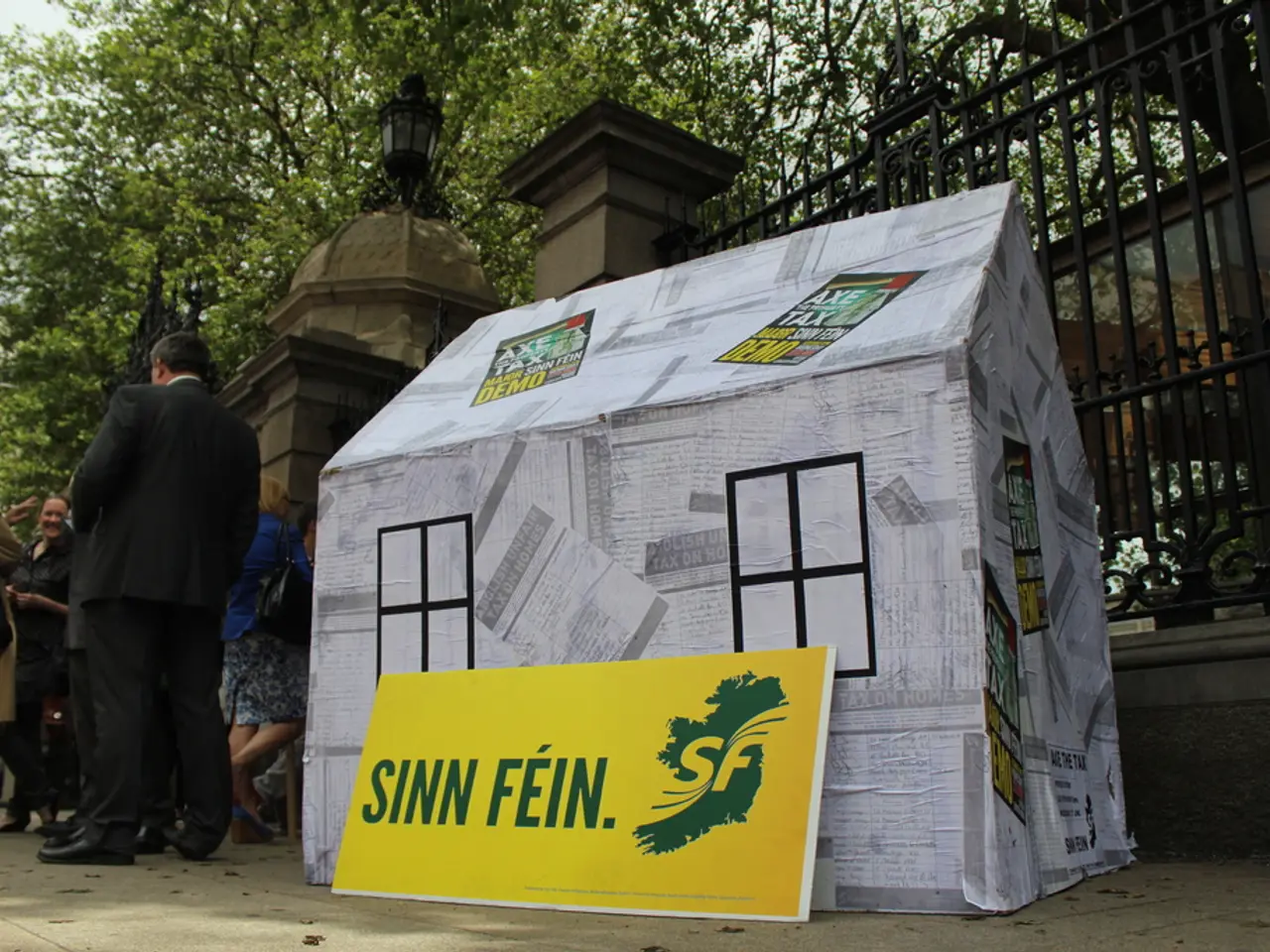Tax inspection of landlords: Potential implications of Rachel Reeves' National Insurance plan on buy-to-let properties
National Insurance contributions have been mandatory for individuals earning more than £12,570 a year from employment or self-employment. This threshold also applies to rental income, but the name or parliamentary function of the person who proposes the national insurance template on rental income remains unclear.
In the realm of buy-to-let properties, a 2% stamp duty surcharge has been proposed by Rachel Reeves, in addition to the extra 3% landlords already pay. This comes as the number of companies holding buy-to-let property in the UK passed 400,000 at the start of this year, with a record-breaking 61,517 new buy-to-let limited companies set up in 2024.
Landlords have the option to transfer the ownership of their properties to limited companies, rather than in their own names. This could potentially shield them from the proposed National Insurance changes. However, it's important to note that landlords currently pay income tax on their rental income.
Self-employed individuals pay 6% on profits over £12,570 and 2% on profits over £50,270. For salaried employees, the rates are 8% on their annual earnings between £12,570 and £50,271 and 2% on anything over that. Above £50,270, self-employed individuals pay 40% tax on the portion of their earnings between £50,271 and £125,271 and 45% tax on anything above that.
The average five-year fixed rate buy-to-let mortgage is around 5.25%, and a typical landlord requiring a £200,000 interest-only mortgage on a five-year fix will typically pay £875 a month in mortgage costs. It is not yet confirmed if National Insurance would be levied on pre-mortgage profits or if mortgage costs could be offset against National Insurance payments.
While higher rents hit tenants' pockets, they also carry a direct cost to the Government, who pay many private landlords through housing benefit. Many across the property industry think a National Insurance raid on landlords would be bad for renters, as it could lead to increased rent prices.
It's worth noting that buy-to-let mortgage repossessions are up by 11% year-on-year, suggesting that some landlords may be struggling with their financial obligations. Treasury officials are said to think the proposals could levy £2 billion a year from property earnings.
In conclusion, the proposed changes to National Insurance and the buy-to-let sector are significant and could have far-reaching implications for both landlords and tenants. As the situation develops, it's crucial to stay informed about these changes and their potential impact.
Read also:
- Jaroslav Rudiš is organizing the Wiesbaden Literature Festival in 2025
- Top 5 ASX-Listed Graphite Companies Projected for 2025
- Affordable, Comprehensive Energy Storage Solution for Small-Scale Power Plants: The Marstek Jupiter C Plus, Priced Under 220 € per Kilowatt-Hour, Offers a 100 € Discount per Set.
- Sunscreen: Its Capabilities and Limitations - Unveiling the Facts About Its Protection and Inefficiencies








